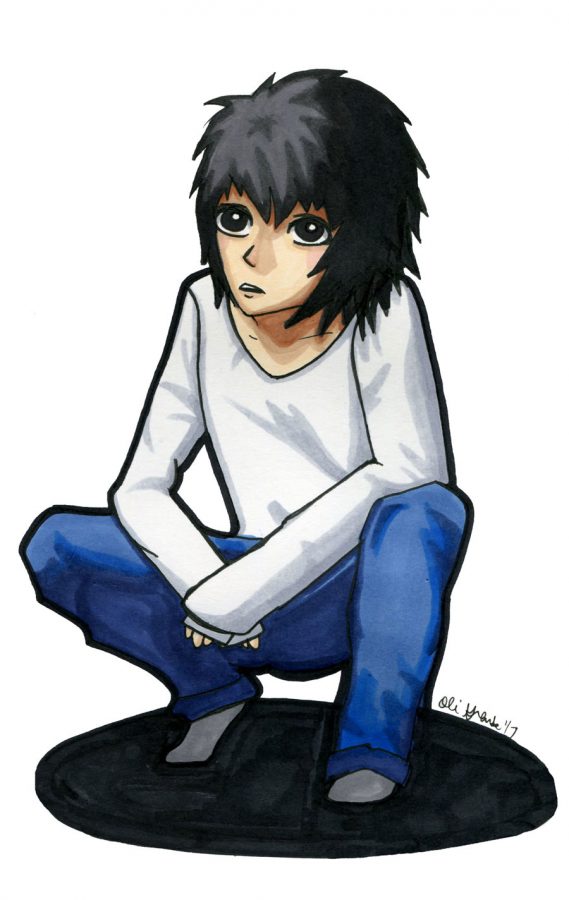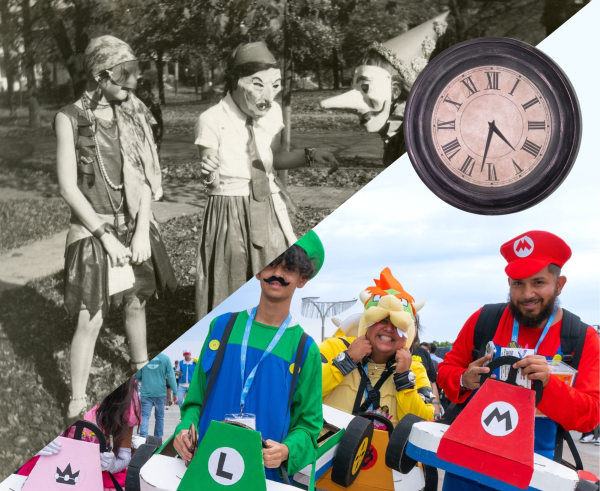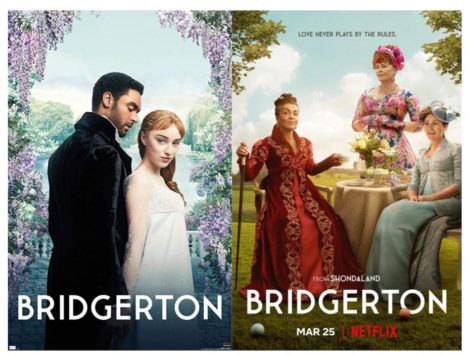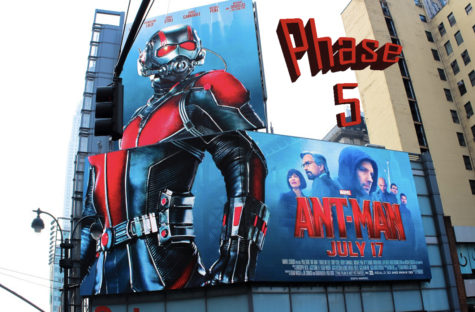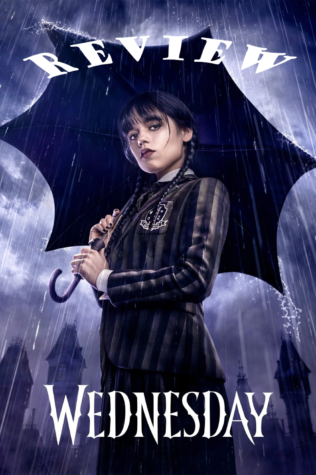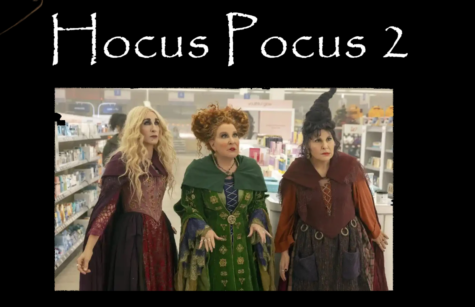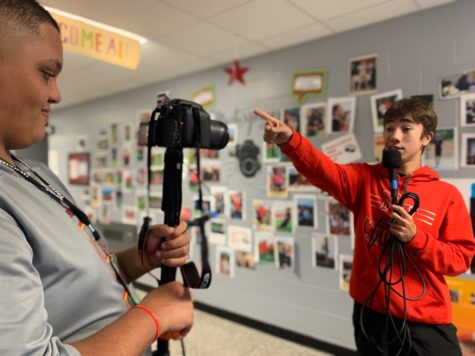Original anime vs Netflix movie
Comparing Death Note anime to Netflix’s interpretation
Nov 28, 2017
Death Note was originally a manga written by Tsugumi Ohba and illustrated by Takeshi Obata. The anime aired in Japan from 2006-2007 and has since then found great success in America. Despite the fact that the animated series is foreign, it has gained traction and praise in the states due to its fast pace, complex characters, and engaging plot.
The story revolves around a brilliant high school student by the name of Light Yagami. In short, he finds a notebook that allows him to kill anyone by simply picturing their face in his mind and writing their name in the notebook.
The original owner of the book, an invisible Shinigami (god of death in Japanese folklore) named Ryuk, accompanies Light through the story. Death Note not only follows the captivating tale of Light’s use of the notebook, but asks deep moral questions about death, power, worth, and human life.
Due to its success, Netflix decided to create a live-action version of the anime. Most people agree that film adaptations do not need to be 100 percent faithful to the source material, but an adaptation should at least be a somewhat accurate interpretation rather than a misrepresentative trainwreck.
The anime is set in Japan, however, in the live action remake, none of the characters/actors are Japanese. Netflix not only changed this huge plot point, but altered the names of the Japanese characters to go with their new setting and story. Light Yagami is now Light Turner, Misa-Misa is now Mia, and so on.
These inaccuracies may not be a big deal to some, but they completely changed the character’s personalities. Instead of being the ruthless, supergenius killer Light is in the anime, he is a wimpy, “leave me alone Dad, I know everything” teenager who just uses the notebook to impress a girl.
L. Lawliet, a brilliant detective, is a chill, sarcastic, socially awkward prodigy in the anime, but in the movie, he is the complete opposite – an immature private eye with anger issues. The list goes on.
Netflix’s adaptation has a completely different plot from the anime as well. To some, this could be alright because it is just an adaptation, but the injustice the film does the anime is unacceptable. Instead of a haunting, conflicted thriller like the anime, it is a twisted high school drama.
On its own, when not being compared to the original, the movie is average – a decent plot, okay characters, a cheesy ending, the usual. However, it can’t hold a candle to the anime. Sorry, Netflix – you get an E for effort.



